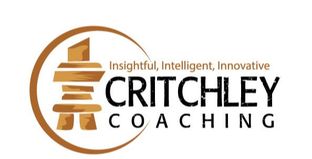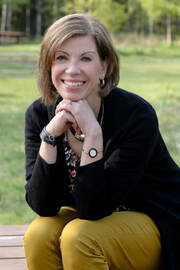
As with everyone, I love some sports more than others. I do, however, try to appreciate all of them. I kind of long for the days when one or the other major television stations carried the exclusive coverage. We knew we just had to turn on the television and we’d see everything there was to see. These days there are many stations carrying the games and it’s a bit of an Olympian feat of its own to figure out where to go to watch. So far, I’m not medalling in this! The downside of so many channels is that in choosing, it’s easy to skip past unfamiliar sports, never broadening our interest or knowledge.
The other evening, I watched the Women’s Halfpipe. This isn’t a sport I am familiar with, it’s not a sport I dream of doing, nor is it a sport that when I watch it, I think, ‘Oh, I could do that!’. This one must take veins of ice. These young women stand at the top, on their snowboards, slightly to the side of the pipe and then up and over the edge they go. This is the part I could never get past. The part when they stand on that edge, unsatisfied, and somehow ready.
A couple of weeks ago I was looking for a document. I thought it might be in my cedar chest so I dared to open it, knowing it always produces treasures I haven’t thought about for a long time and knowing this might not be a short ‘look’. This time did not disappoint. I didn’t find what I was looking for, instead I found something I didn’t even know existed.
I found a hand-written yearbook from my Grade 8 year. This was a graduation year for me since in Ontario, high school started in grade nine. I didn’t attend this celebration since my family was making an early start on our drive to the East Coast to see our cousins. Luckily for me, someone noticed I was absent, got a copy of our yearbook and mailed it to me. I don’t remember ever seeing it at that time and I have never given it a moments’ thought since then.
This yearbook was published long before there were photocopiers in schools, and long before there was a way to economically include photos. The entire book, all 30 plus pages were hand-written. Hand-written! They were run off on a gestetner machine (the ones with the barrel, the blue ink from the carbon paper and the crank handle) and stapled together by hand. Of course, it was packed full of memories, of names of classmates I’ve almost, but not quite, forgotten, and of pages that take me right back in time. Back a half of a century.
The very first page of the book was a message to us, the graduating class, from our principal, Sister Conception. Yes, you can read that again. Our principal was a nun, and her name really was Sister Conception. At that time, I assumed she was a well-aged teacher. It turns out she would have been in her mid-thirties at the time I graduated. Her message stunned me.
I don’t know quite what I was expecting. Perhaps something religious. Perhaps something reflective of the times. Perhaps something that had outdated itself. It was none of these.
Sister Conception’s message was so stunning because it was so forward thinking. It would be forward thinking today, in 2022. She wished for us, she called it a strange wish, that we would always ‘stand on the edge, unsatisfied’. She wrote, ‘I hope you will continue to educate yourselves, to search for meaning in human history, to go one step beyond fascination and creativity, to succeed where all the odds are against you.’ She said, ‘You are the most human when you are standing on the edge, unsatisfied.’
I tucked my handwritten yearbook back into its old brown envelope and returned it to the cedar chest, but not before making a copy of Sister Conceptions one page address. I’ve put it in plain sight in my office.
We take for granted that our Canadian athletes are prepared to do their best. But becoming ones best is not easy. It sounds so simple. Just do your best, a parent might say to a child as they are trying out for a team or heading into an exam. Just do your best, we Canadians might say to our athletes, assuming they have put in the hard work, and now they simply must write the final sentence of their Olympic journey. But this idea of becoming our best, not just doing our best, intrigues me. It forces me to recognize that there is never going to be a moment when I can say, ‘There, I am my best.’ It encourages me to grant grace to myself and to others, for if we challenge ourselves to ‘stand on the edge, unsatisfied’ it indicates we acknowledge we are putting ourselves on the path to ‘best’, all the while knowing it is not a destination where our life train will ever stop.
There are so many lessons we can take from Olympians. This week, I wish they could hear the words of Sister Conception. I wish they could know we see them, standing on the edge, unsatisfied, and know that we have deep admiration for their courage and daring to stand there. Perhaps this is the very reason they resonate with us. Perhaps Sister Conception was exactly right when she said we are most human when we stand on the edge, unsatisfied. Perhaps this is what allows us to relate to these Olympians even though most of us will never become one. Each of us though, can stand on an edge in our own life and dare to become. To become more, to become something we are not quite, to become closer to what we secretly dream. To understand that it is okay to not have arrived, and even when we think we have arrived, to celebrate with great joy, and then notice the next edge awaiting us.
Go Canada Go!
My inquiry for you this week is, ‘On what edge are you standing, unsatisfied?’
Elizabeth is a certified professional Leadership Coach, and the owner of Critchley Coaching. She is the founder and president of the Canadian charity, RDL Building Hope Society. She works with corporations, non-profits and the public sector, providing leadership coaching. She creates and facilitates custom workshops for all sizes of groups. She has expertise in facilitating Strategic Plans for organizations and for conducting leadership reviews. Contact Elizabeth to learn how to stand on the edge, unsatisfied.


 RSS Feed
RSS Feed